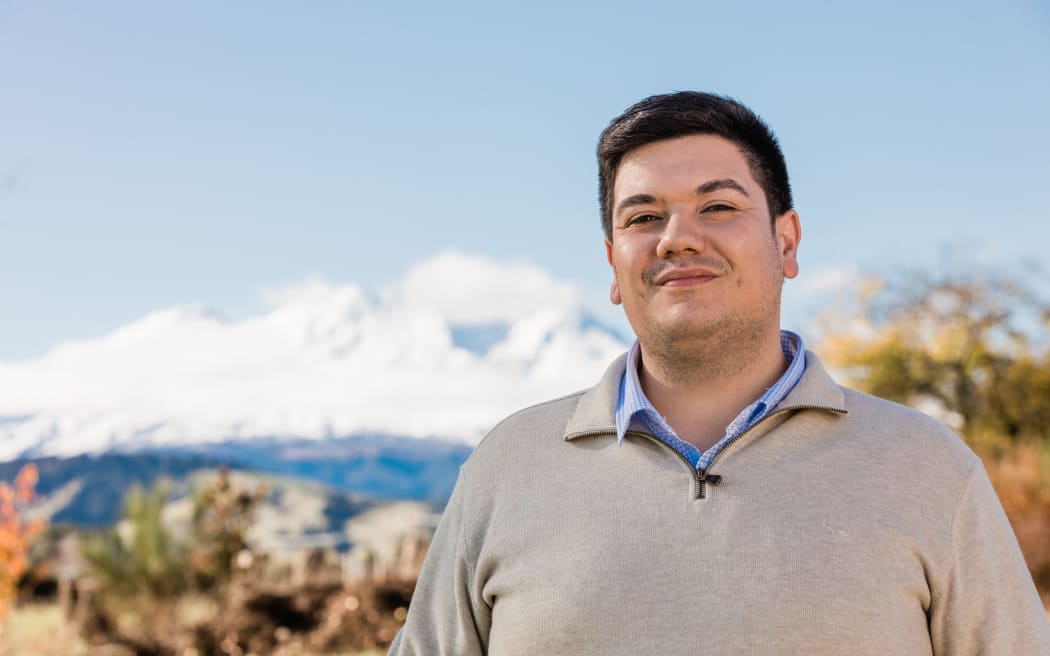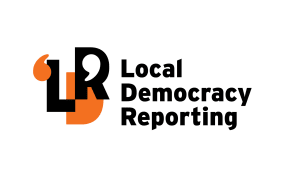Ruapehu District Council’s youngest councillor Elijah Pue is entering the district’s mayoralty race.

Elijah Pue is standing for the Ruapehu district mayoralty Photo: Supplied / Erica Sinclair
If successful, the 28-year-old would be the youngest mayor elected to the Ruapehu district.

“I am young, but I’m ready, and have the experience on council,” Pue said.
Longstanding incumbent Don Cameron is retiring as mayor this year. Taumarunui councillor Adie Doyle is so far the only other candidate to declare his intention to run for Mayor in October’s local body elections.
A Raetihi local, Pue was elected to the Ruapehu council in 2019. He is one of two Māori councillors, both elected to general seats.
Pue said his campaign will focus on three issues which he sees as fundamental to community prosperity: economic development, the climate emergency and removing red tape to boost housing and community wellbeing.
The tourism hotspot’s recovery from the pandemic was a priority, he said.
“Covid has hit us economically and socially. I want to boost economic development in a way that places a priority on local tourism operators, local businesses and sharing the beauty of our district.”
Recognising and addressing the climate emergency would require a whole-of-community response, he said.
“Everyone is facing the ongoing impacts of climate change. It’s about time we start recognising that and – as a council, as businesses and as a community – start coming up with ways to deal with it.
“This isn’t about farmers – actually, we can be proud of our farming community in the Ruapehu who do really well in terms of riparian planting, fencing off waterways, using biodegradable wraps on baleage, and such things.
“All of us have a responsibility for climate change. It’s about getting on with dealing with it.”
The council must also enable community wellbeing through better and more housing, Pue said.
“We have pensioner flats. But there is huge opportunity for us to grow that into providing more social housing for young families, workers and the general community.
“There is a huge issue with overcrowding, people living in damp homes, and that talks to the inequities that we have in our district. It’s about enabling more community housing providers to be stood up and recognising that housing will go a long way toward community wellbeing in Ruapehu.”
Removing red tape from council processes would be key.
“We need to start making more logical, sensible decisions by removing some of that red tape. Simple processes and procedures at council can change in a way that enables us to realise our aspirations, as opposed to being hamstrung by laws and regulations.
“We need more houses, so council should be enabling iwi, community providers and local businesses to provide accommodation. Equally, if families and the community wish to do it for themselves in their own back yard by putting up a couple of homes, we should be enabling that as opposed to restricting it.
“There is also housing opportunity in papakāinga and in Māori housing generally – there’s so much money out there from the government around those two kaupapa. The council can play a role in enabling that development.”
Pue said local government was on the cusp of major change.
“You’ve got all of the reforms that are currently happening – Three Waters, resource management, health reforms that are about to kick in on 1 July. You’re going to see a change in the face of local government across the motu, with a general election coming up next year as well.
“These changes could be quite overwhelming for the ratepayer, but the reforms are critical to ensuring our ongoing prosperity and wellbeing as a community in Ruapehu.
“Now is a critical time for us all to put our hands up to say I’m in, let’s do this, let’s recover from the Covid pandemic, let’s start to realise our community aspirations.
“As Mayor, I could help start to make those incremental and critical changes that our community needs now so that our mokopuna in 10, 20, 30 years’ time can reap the benefits.”
Pue worked as a university student for the Māori Party at Parliament for several years, supporting founding co-leaders Tariana Turia and Pita Sharples in policy development and portfolio responsibilities, before returning home four years ago as operations manager for Ngāti Rangi and in iwi and community development in Ohakune.
He headed the Covid-19 welfare response for Waimarino communities over the past two years, and Te Ranga Tupua iwi collective’s vaccination rollout in Ruapehu, Rangitīkei, South Taranaki and Whanganui. Pue has also worked in tertiary education, and chairs Ruapehu College’s board of trustees. He now works for Te Oranganui, the largest Māori health provider in the Whanganui DHB district.
Pue said he represented demographics that had not been well represented in local government.
“Over 45 percent of people in the district are Māori, 20 percent are aged between 18 and 35; and 25 percent are under the age of 18. I am able to respond to and reflect the priorities of population groups that have been too frequently ignored in local government.”
The advent of three Māori ward seats in October’s elections would bring more Māori perspective to the council table.
“That’s really critical to have in today’s society. But we don’t just need to leave it to the Māori ward candidates to bring that worldview to our decision making. Actually, everyone can be part of that, including in a general seat or as the mayor.
“The issue we have is that candidates across central and local government don’t necessarily represent the entire demographic. If people could see themselves standing for Mayor or for council, they would start to engage in the political process.”
Local Democracy Reporting is Public Interest Journalism funded through NZ on Air